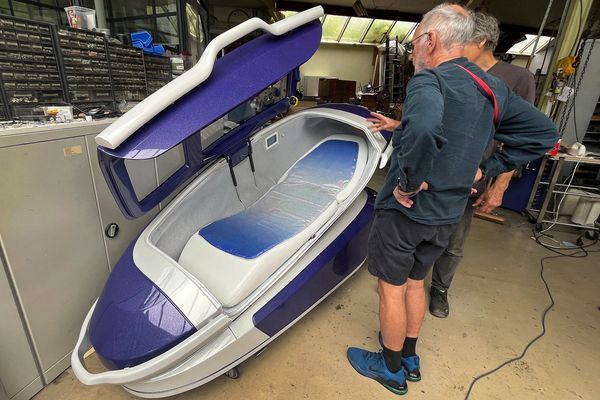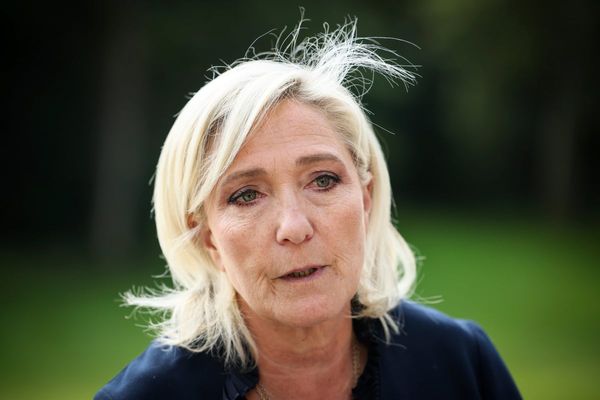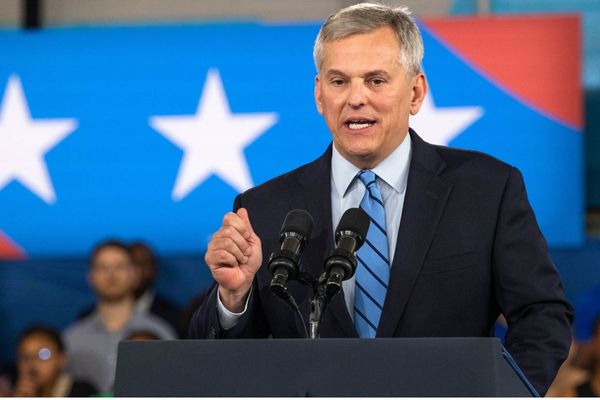
For many players, signing for a Premier League club is a dream come true. The sold-out stadiums, the salary, the fast-paced football. For Jean-Philippe Gbamin, who Everton bought for £25m from Mainz in 2019, it quickly turned into a nightmare.
There are many factors which contributed to his four-year stint at Everton being an unmitigated disaster. Some of these reasons were uncontrollable, at least by the club or player: a freak achilles injury, the pandemic, loan spells that brought more problems than solutions. But there are also claims that the way Gbamin was treated contributed to his plight.
Those claims are made by Gbamin’s agent, Bernard Collignon, who has looked after “JP” for 14 years. Gbamin, 28 and in his prime, forfeited the last year of his £5m salary last month in a desperate bid to start over. The Ivory Coast midfielder is now a free agent.
“Arsenal and Tottenham wanted Jean-Philippe in 2019,” Collignon says. “Jürgen Klopp, who managed Mainz, had wanted JP before signing Fabinho. But we chose Everton because if you arrive straight away at a big club in England, it’s very difficult to make it. N’Golo Kanté would never have been the player he was at Chelsea if he didn’t arrive at Leicester. The same with Riyad Mahrez at [Manchester] City. Kurt Zouma went straight to Chelsea and didn’t do well straight away. The same with [Romelu] Lukaku, Mo Salah, Kevin De Bruyne, Timo Werner. The level is so high, but also the approach is so demanding. Players have to be ready for all of it.”
Gbamin, after impressing at Lens and Mainz, was signed at Everton to replace Idrissa Gana Gueye, who left for PSG, but Collignon feels that the decisions made by Everton in the defensive midfielder’s first few days on Merseyside may have contributed to his client becoming injured.
“When JP signed at Everton in 2019, he came straight from Afcon and then had a three-week break after a long season. He had to rest. But after four days training with Everton, JP played a match. He had not done a pre-season. The next game, he played 90 minutes!

“This is not just an Everton problem though, this is an English problem – clubs don’t know how to manage a player regarding injuries. This is the reputation. Players are signed to very high salaries. But because of that, they are expected to play, whether you are fit or not. They don’t care. The intensity of the Premier League is so high that when a player is injured or not fit, they should recover slowly, step by step.
“This is why Arsène Wenger did so well at Arsenal; he understood about recovery and about introducing young players to England. It is different in France. When JP had an injury earlier in his career at Lens, he played four reserve games after he was fully recovered, before rejoining the first team. Match fitness, confidence, it all plays a part.” Everton declined to comment about the decisions made in 2019.
Gbamin’s story cannot be seen in isolation. Many Premier League players have gone on record to explain the pressures that exist. To train, to play, to take painkillers. Things can easily spiral out of control, whether out of naivety, overzealousness or something more sinister. But in the pressure cooker of the Premier League, just as in the NFL or rugby union, teams want a tangible return on their investment. Some bodies are able to navigate the workload. Some are able to play through the pain. And some are not.
Gbamin played 38 games in all competition in the 2018-19 season with Mainz but that durability did not translate to the Premier League, where he struggled to overcome an early thigh injury that required surgery. Then, in early 2021, another blow arrived.
“When JP got fit, Covid came,” Collignon says. “He was forced to treat himself at home. Nobody from the club could come. One day JP was playing football tennis, on his own, and he snapped his achilles.”
In four years at Everton, Gbamin made eight appearances for for the club (including just three starts), although he has been largely fit for the last 18 months, which featured mixed loan spells at CSKA Moscow and Trabzonspor.
Collignon paints a dark picture, and one that was damaging to Gbamin’s already fragile reputation. Gbamin has been a victim of misfortune with his injuries, but also beholden to outside influences.
On 1 September, after the closure of the most recent transfer window, Gbamin mutually terminated his contract with Everton, and now feels as if he has at least clawed back some autonomy.

“It was not easy to cancel the contract with Everton,” Collignon says. “JP left a one-year salary on the table, worth £5m. He didn’t take any money. The club had to wait until the end of the window to see if there was a club who wanted to buy him, but nobody wanted to pay Everton’s price, especially for a player that can sign [a pre-contract agreement] for free in January.
“We found the agreement of cancelling the contract 20 minutes before the deadline, at 11.40pm. Once the deadline is passed, you cannot cancel the contract in the same way.
“Nicolas Pépé and his agent wanted to do the same thing, but Arsenal thought they would have an offer from Saudi Arabia, so they waited. No offer came. So they released Nicolas on 8 September. Because he had lost a week, the only option then was to sign for a club in Turkey, as this was the only window that was still open.”
It is not widely known that the timing of when a contract is terminated can have wide-ranging consequences on where the player ends up, even after becoming a free agent. Having cancelled his contract inside the transfer window, Gbamin is free to sign for any club across Europe; because Pépé’s contract was terminated later at Arsenal, he was able to sign before January as a free agent only for clubs in leagues that still had their window open on 8 September.
“Everyone is aware that JP is available,” Collignon says. “But all the clubs have budgets and most clubs use all their budget in the window. JP is an international player; he is not affordable for all of the clubs. Also, in France, clubs have to wait until mid-October to receive their share of the TV rights. After that, maybe they can sign a player. It’s like musical chairs.”
For now, Gbamin must wait. The midfielder’s talent has never been in doubt, and he retains a hope of adding to his 16 caps. Gbamin is reportedly the fittest he has been in years, training at his local side in France and paying a team of nutritionists, trainers and physios €5,000 a month to ensure that when the call comes, he is ready. But which team are willing and able to take the gamble?
“The coach of Ivory Coast [Jean-Louis Gasset] keeps calling,” says Collignon. “He needs JP to play at Afcon, but JP needs to find a project.”







